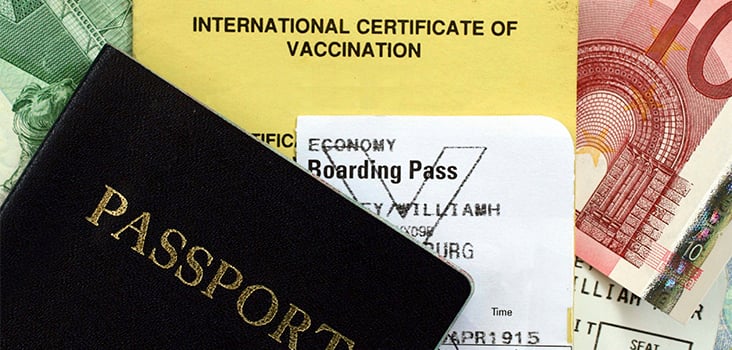
The Difference Between Routine Vaccinations and Travel Vaccinations
For employees who may travel overseas, there is increased potential to be exposed to foreign illnesses that may not be present in the US, making vaccination a vital step in staying healthy. But there are important differences between standard vaccines and ones that may be required for travel, depending upon the destination. Before your employees head overseas, it’s important to know the difference between traditional inoculations and more specialized vaccines and consult with a travel health expert.
Routine - or Standard - Vaccinations
“Routine” vaccinations are those vaccinations that are recommended for everyone in the United States. Most people in the United States have received routine vaccinations. These vaccinations include, among others, polio, measles, Hepatitis B, and DTaP. You may think that these vaccinations are just for kids, but even adults should receive certain routine vaccinations regularly, such as the flu shot. Adults may also need to receive routine booster vaccinations, such as the 10-year tetanus booster.
Many vaccine-preventable diseases that are rare or non-existent in the United States are more common in many foreign destinations. Because of this, the Centers for Disease Control and Prevention (CDC), recommend employees visit a health care provider four to six weeks before travel to ensure proper vaccination and that the vaccines reach optimum potency. Depending on the intended destination, travelers may need to ensure routine vaccinations are up-to-date, or may require special travel vaccinations to protect against health issues at foreign destinations.
Having up-to-date routine vaccinations is especially important for international travelers. According to the CDC, up to 64% of travelers report some type of travel-related illness or health problem while visiting developing countries, or shortly after returning home. For example, Europe had a significant measles outbreak in 2011 that infected many unvaccinated American travelers. Because the disease is so rare in the United States, it spread to other unvaccinated people in their communities when they got home.
Travel Vaccinations
Whether travel vaccinations are needed (in addition to routine vaccinations) depends on the final destination, and the current health advisories. Travel vaccinations generally fall into two categories:
Recommended vaccines
These vaccines can protect employees in countries or regions that may have a current disease outbreak. They can also help prevent against spreading diseases from country to country.
Recommended vaccines may include:
- Hepatitis B
- Typhoid fever
- Yellow Fever
- Rabies
Individual immunization and health history may also influence which vaccinations a medical provider recommends. Employees should be sure to discuss these—and the destination—with a doctor before their trip.
Required vaccines
Some destinations require travelers to receive certain vaccines before visiting. Some parts of South America, for example, require travelers to get a yellow fever vaccine before visiting. Which vaccines are required depend on the exact location and, to some extent, the type of work being done. A travel itinerary that involves work with the sick may require different vaccines than one for traveling on business or for touring Europe.



